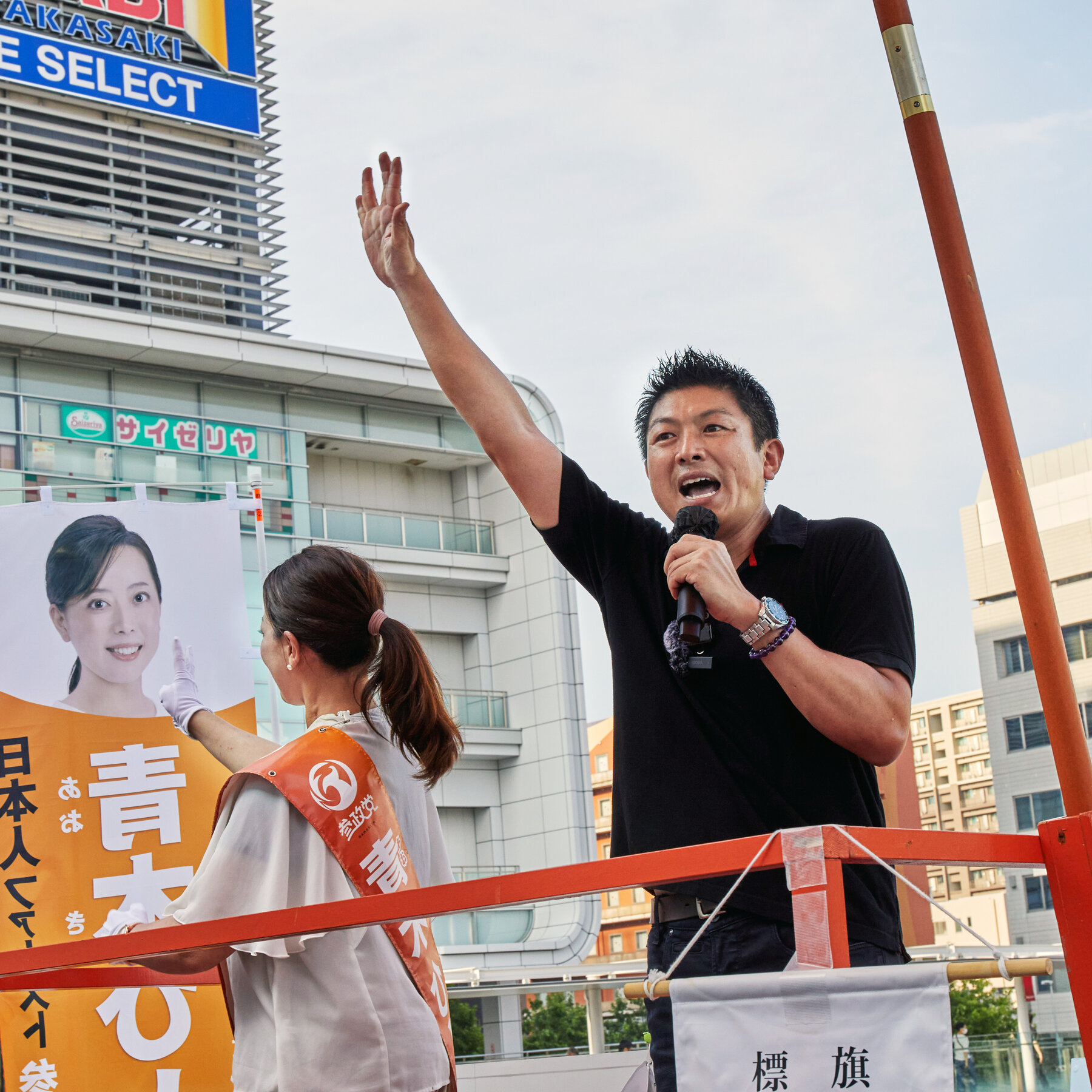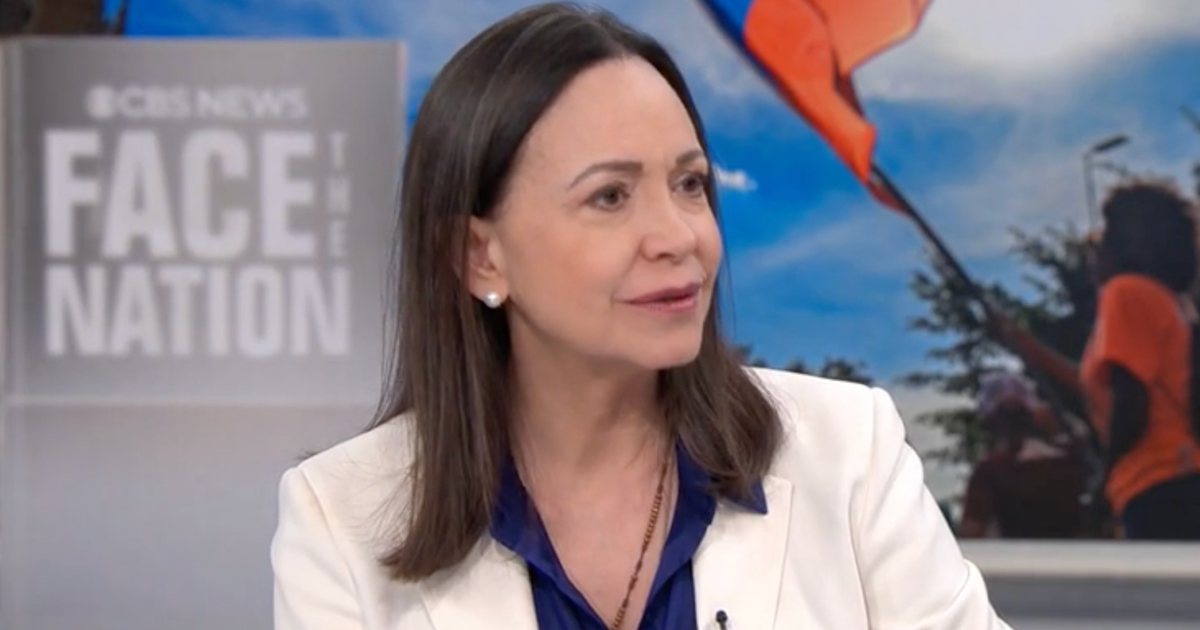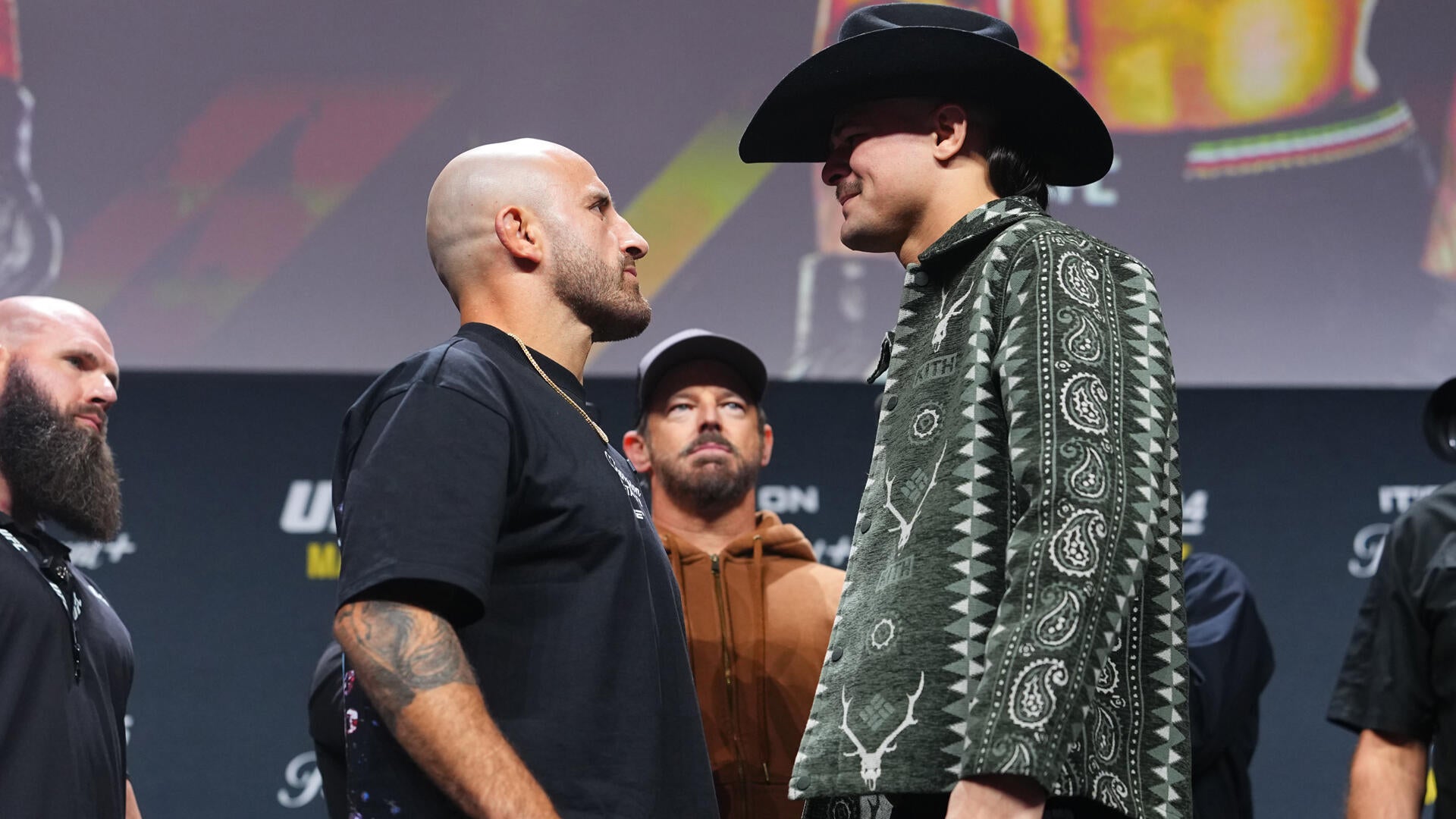
The crowd of 800 people were younger than those who typically attend political rallies in Japan. But they had gathered in the shadow of a smoking volcano to hear a populist upstart in Sunday’s parliamentary elections whose heated campaign speech would sound familiar to voters in the United States or Europe.
They burst into cheers when Sohei Kamiya climbed to the top of a campaign truck decorated in the orange colors of his fledgling political party, Sanseito. Grabbing a microphone, he told them that Japan faced threats from shadowy globalists, lawbreaking foreigners and a corrupt domestic political establishment that was stifling the younger generation with taxes. His solution: a nationalist agenda that he calls “Japanese First.”
“Japan must be a society that serves the interests of the Japanese people,” Mr. Kamiya told his applauding audience.

Mr. Kamiya founded the party and is one of its two sitting members in the Upper House. Elected to a six-year term in 2022, he is not on the ballot himself this year. But he has crossed Japan to campaign on behalf of Sanseito’s 54 candidates, a large number that reflects the new party’s big ambitions.
Opponents and many domestic media reports have accused him of being xenophobic, saying he is directing public dissatisfaction with high prices and stagnant wages at Japan’s growing population of foreign residents. At campaign stops, small numbers of protesters hold up signs saying “no hate” toward non-Japanese.
But his message has clearly struck a chord with many voters. Polls ahead of Sunday’s Upper House elections show Sanseito is likely to place third. This would be a strong showing in a nationwide election by a party that did not even exist five years ago and that has drawn mainly young, male voters.
Mr. Kamiya said he learned many of his emotional button-pushing themes and norm-breaking language from Donald J. Trump, saying in an interview that he was Japan’s closest equivalent to the divisive U.S. president. His success in turning himself into a lightning rod for supporters and critics alike has left many in Japan wondering if their country is belatedly seeing the angry right-wing populism that has transformed the United States and other developed democracies.
“This could be an epoch-making election,” said Jiro Mizushima, a professor of political science at Chiba University who has studied populist parties in Europe. “For the first time, a radical populist party that is openly chauvinist and against austerity is winning support.”
Other political scientists play down the significance of Sanseito, whose name roughly translates to “participate in politics.” They call it one of many flash-in-the-pan protest parties that Japan has seen in recent decades.
Mr. Kamiya is hoping a big win in Sunday’s election will show that his party has staying power as a growing generational divide splits Japan’s voters.
Analysts say Sanseito and a gaggle of other, more moderate nationalist parties have drained support from the pragmatic and conservative Liberal Democratic Party, which has led Japan for most of the past seven decades. They say the assassination three years ago of former Prime Minister Shinzo Abe, a longtime party leader who dominated Japan’s nationalist right, opened space for the outspoken newcomers.

“The LDP has been unable to hold onto the revisionist and xenophobic element that used to be contained in the Abe faction,” said Koichi Nakano, a visiting scholar at the Weatherhead Program on U.S.-Japan Relations at Harvard University.
That loss is reflected in opinion polls, which show that support for the governing coalition has continued to slide. If the Liberal Democrats do poorly, there are widespread expectations that Shigeru Ishiba, the current prime minister, will be forced to resign, though his successor would still most likely come from within the party, which remains the largest.
Many voters have turned to Sanseito and other nationalist parties that have fed on anger about the status quo. To varying degrees, these parties rail against similar issues: the price of staples like rice rising while wages have remained flat; a tax burden that forces young people to pay for Japan’s aging population; and an overreliance on the United States, an ally whose threats of tariffs have stirred feelings of betrayal.
The hottest of the hot-button issues, though, has been a rapid increase in foreign residents, whose number reached 3.8 million last year. While this is still only 3 percent of Japan’s population of 124 million, the number has risen by a third in three years as workers from other parts of Asia have come to fill jobs left vacant by the decline in the country’s working-age population.
On social media, immigrants have been blamed for disrupting Japan’s prized social order, and for a host of misdeeds like not paying hospital bills and driving on the wrong side of the road. While police statistics show that non-Japanese commit crimes at roughly the same rate as Japanese nationals, populist candidates and supporters have seized on crimes by foreigners to argue that immigration should be restricted.

“We don’t want to exclude all foreigners, but Japan should be for the Japanese,” said Yoko Kiba, 47, a hospital worker who came to hear Mr. Kamiya speak during the campaign stop in the southern city of Kagoshima.
Seeking to address such discontent ahead of the election, Mr. Ishiba announced on Tuesday that his government would create a new office to address the crime issue and promote “harmonious coexistence with foreign nationals.”
In addition to wanting to limit immigration, Mr. Kamiya has opposed the use of some vaccines and criticized gender equality for “going too far.” But his core message is that Japan has put the interests of foreigners over those of its own people.
Mr. Kamiya, a boyish former Self-Defense Force reservist, warned in his Kagoshima speech of a different foreign threat: global capital, which he said has hijacked the economy.
“Under globalism, multinational companies have changed Japan’s policies for their own purposes,” said Mr. Kamiya, 47, who did not name any companies, though his party’s candidates have mentioned Chinese investors buying forests and other real estate. “If we fail to resist this foreign pressure, Japan will become a colony!”
He has called for a more equal relationship with the United States by building a full-fledged military — and by refusing to cave in to Mr. Trump’s market-opening demands, despite his professed admiration for the American president.
“President Trump would treat a more independent Japan with more respect,” Mr. Kamiya told the crowd, who stood on a paved square dusted with gray ash from the active volcano.

His party’s other headline-grabbing policy has been the call to eliminate a 10 percent national consumption tax, imposed to help pay the costs of Japan’s growing population of retirees. In his speech, he said the tax placed an unjust economic burden on working-age citizens.
This message appealed to many spectators, who said they felt alienated by the governing party’s focus on older voters.
“Sanseito speaks from the younger people’s perspective,” said Yuka Matsuki, 23, who recently quit her job at a retail store. “It gives us hope that things will get better in the future.”
In an interview, Mr. Kamiya said his positions were shaped by his experiences as an exchange student in Canada and by helping his father run the family supermarket, which went bankrupt. He later became involved in local politics and joined the governing Liberal Democratic Party, which he quit because he considered it too focused on fund-raising.
Five years ago, he started Sanseito, which shuns big donors, instead funding itself by asking supporters to become paying subscribers to its website. In elections in 2022, the party won its first seat in the Upper House, which Mr. Kamiya now holds. He is not up for re-election until the next Upper House contest in 2028.
Sanseito gained one more seat last month when a lawmaker left another small opposition party to join it, and it won three seats in a Lower House election last year.
In Sunday’s election, recent polls show Sanseito with about 6 percent of the national vote, enough to give it between 10 and 20 of the 124 seats up for grabs. It often polls neck and neck with the Democratic Party for the People, a more moderate right-wing party that has also attracted younger voters.

Mr. Kamiya hopes the momentum will help Sanseito grow into a larger national movement. He wants to create a Japanese cousin of Mr. Trump’s “America First” movement, though he will not follow Mr. Trump in every regard.
“Sanseito’s vision is close to American First, but not its leadership style,” Mr. Kamiya said. “Trump’s egotism is just too self-centered for Japanese.”
Hisako Ueno contributed reporting from Kagoshima, Japan, and Kiuko Notoya from Tokyo.











-3.png)



